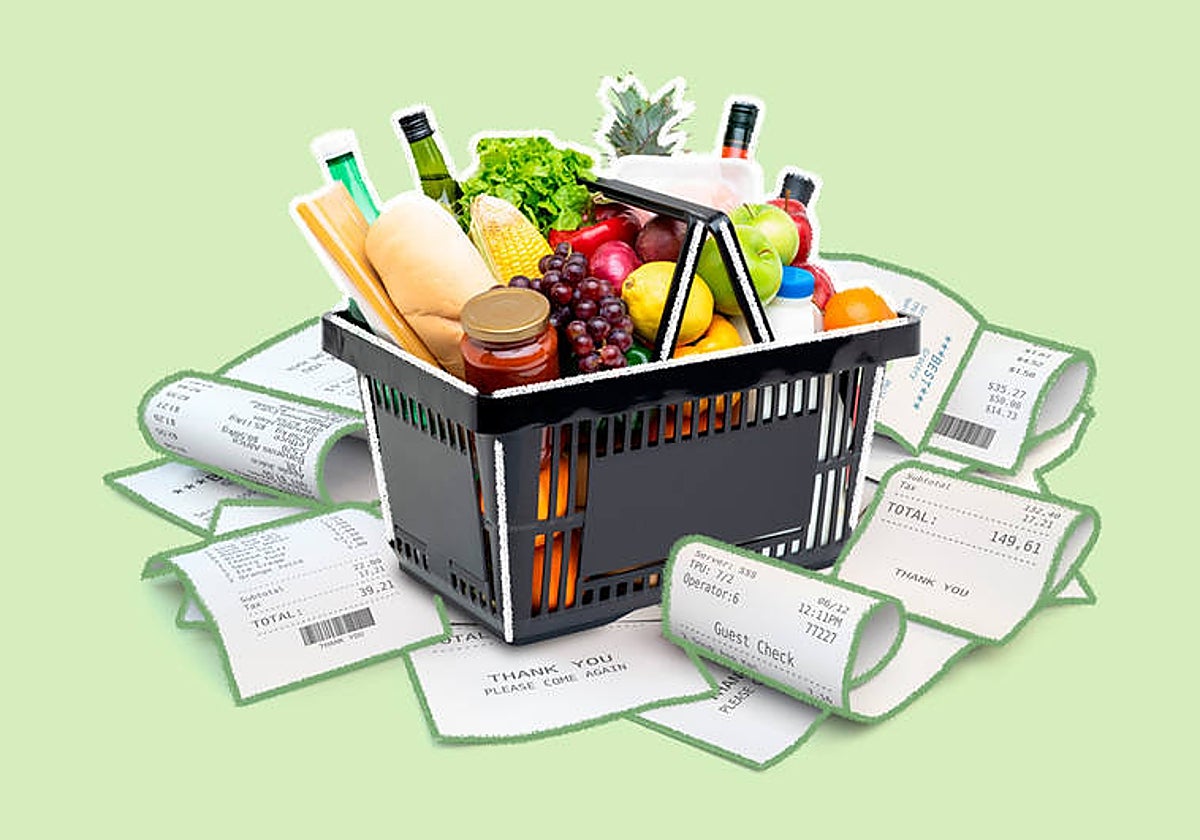How much does it cost to shop organically?
The market for 'eco' products in Spain was worth 2.8 billion euros in 2022
Raquel C. Pico
Madrid
Viernes, 14 de abril 2023, 08:25
With rising inflation, we have all felt the pinch of the cost of living crisis; filling the shopping basket with basic products is more expensive than a year ago and inevitably, it’s the same story with organic products. "Like other sectors, inflation also influences us," says Diego Granado, secretary general of Spain’s association for organic producers, Ecovalia.
In 2022 the average consumer price index (CPI) was 8.4% higher than in 2021 and the price of some products has soared. For example, milk increased by 37%, eggs by 31% and juice by 18%. This rise in is also noticeable among organic products. "Obviously, we also see this rise reflected," explains Granado. "But we are a more resilient sector because we use the circular economy," he adds.
"Organic products are often three times more expensive than supermarket own label products," says a recent report by Spain's Organisation of Consumers and Users (OCU). A problem that "causes many consumers not to develop their inner green customer," explains Juan Carlos Gázquez-Abad, associate professor at the Universitat Oberta de Catalunya (UOC)’s faculty of economics and business.
According to the latest 'Connecting with eco-conscious consumers' study, almost seven out of ten Spaniards surveyed would like to do more for the environment and the planet and that includes buying organic products.
However, "The eco-conscious consumer is a product of the values they have, but even if they have them, their economic situation will condition whether they adopt a more active or less active behaviour, regardless of their values," says Neus Soler, professor at the UOC's Faculty of Economics and Business. "The interest in these products is growing little by little and can be seen in per capita spending," contrasts Ecovalia's secretary general.
General awareness
The latest annual report of the Spanish professional association of organic production reveals that Spanish consumers spent 60 euros on average on organic purchases. "In recent years we have gone from around 20 euros to the current 60," reveals Granado.
However, Spain is behind Switzerland, where the average shopper spends 425 euros on organic purchases or three times less than the French who spend 187 euros on these purchases. "It's a bit of general awareness," justifies Granado.
Nevertheless, the increase in per capita spending by Spaniards in the last four years has grown by 22% to reach the current figure. This rise can also be explained by the increase in prices experienced by the sector. "Although they have done so almost one point below the overall average," says Granado.
Prices
In Spain a dozen organic eggs can be up to 5.50 euros on supermarket shelves. "They are one of the most popular products," says Granado.
The same brand can charge up to 60% more for its organic version of the same product than the conventional one, according to the OCU. This difference is explained by the production costs of these foods; the absence of non-organic fertilizers and other chemicals increases the price.
The average Spanish basket consists of household cleaning products (75.8%), dairy products, yogurts and desserts (74.5%), packaged foods (61.9%) and personal hygiene products (60.7%). When it comes to organic produce, "the most popular are vegetable products," explains Granado.
Cleaning products
The organic basket in Spain during 2022 was 64% fruit and vegetables and 36% of animal products, mainly meat (27%). Although it’s environmentally-friendly cleaning products that see the highest sales. 20% of those who buy cleaning products from sustainable brands have no intention of switching to non-organic brands even with the general increase in prices.
By country, Australia is the biggest producer of organic products per hectare. Spain is the second European country after France with 2.64 million hectares. "It has grown by 26.6% in the last five years and without government aid," explains Granado.
Inflation has increased organic prices and therefore slowed consumption, but has not slowed production. The total market for organic products in Spain in 2022 reached 2,856 million euros, of which 2,532 correspond to the market value in households, as revealed by the Ecovalia annual report.
Organic production in Andalucía
By geographical area, Andalucía accounts for almost half of the total with 1.4 million hectares devoted to organic production. Castilla La Mancha and Catalonia are the other two major producers with 15% and 10% of the total.
The main organic crop is nuts, with 262,280 hectares; olive groves, with 256,507 hectares; cereals, with 241,913 hectares; and vineyards, with 142,176 hectares. However, percentage-wise, the four crops that have grown the most are: nuts (33%); bananas and subtropical fruit (23%); citrus (21%) and olives (15%).
In Spain there are a total of 62,320 organic entities, a category that has registered an increase of 41.7% in the last five years. "We have to continue to work on raising awareness among farmers and also consumers," Granado points out. "We have to work on labelling, because it isn’t clear. People have to know that if there is a green leaf, it is an organic product.”
